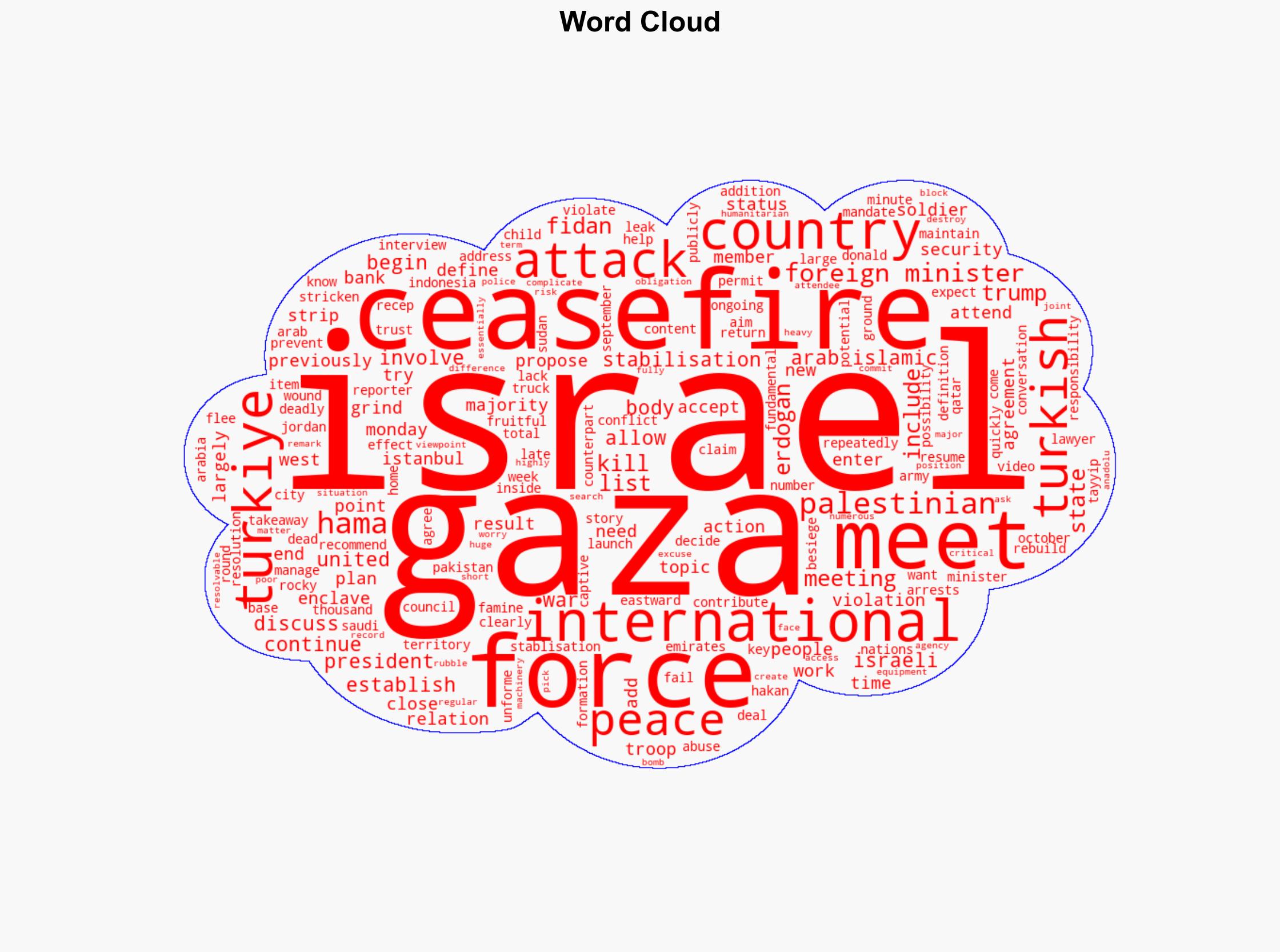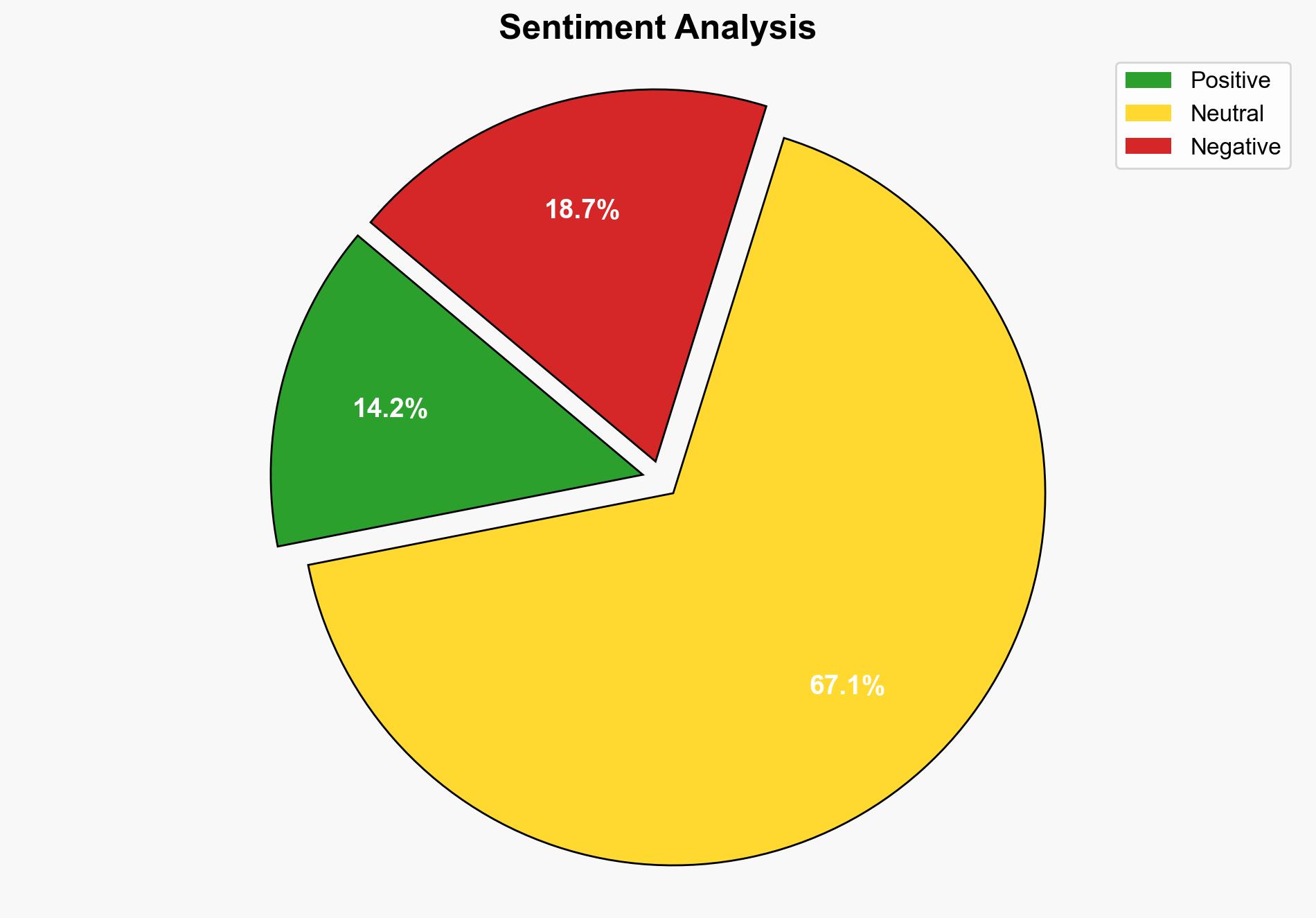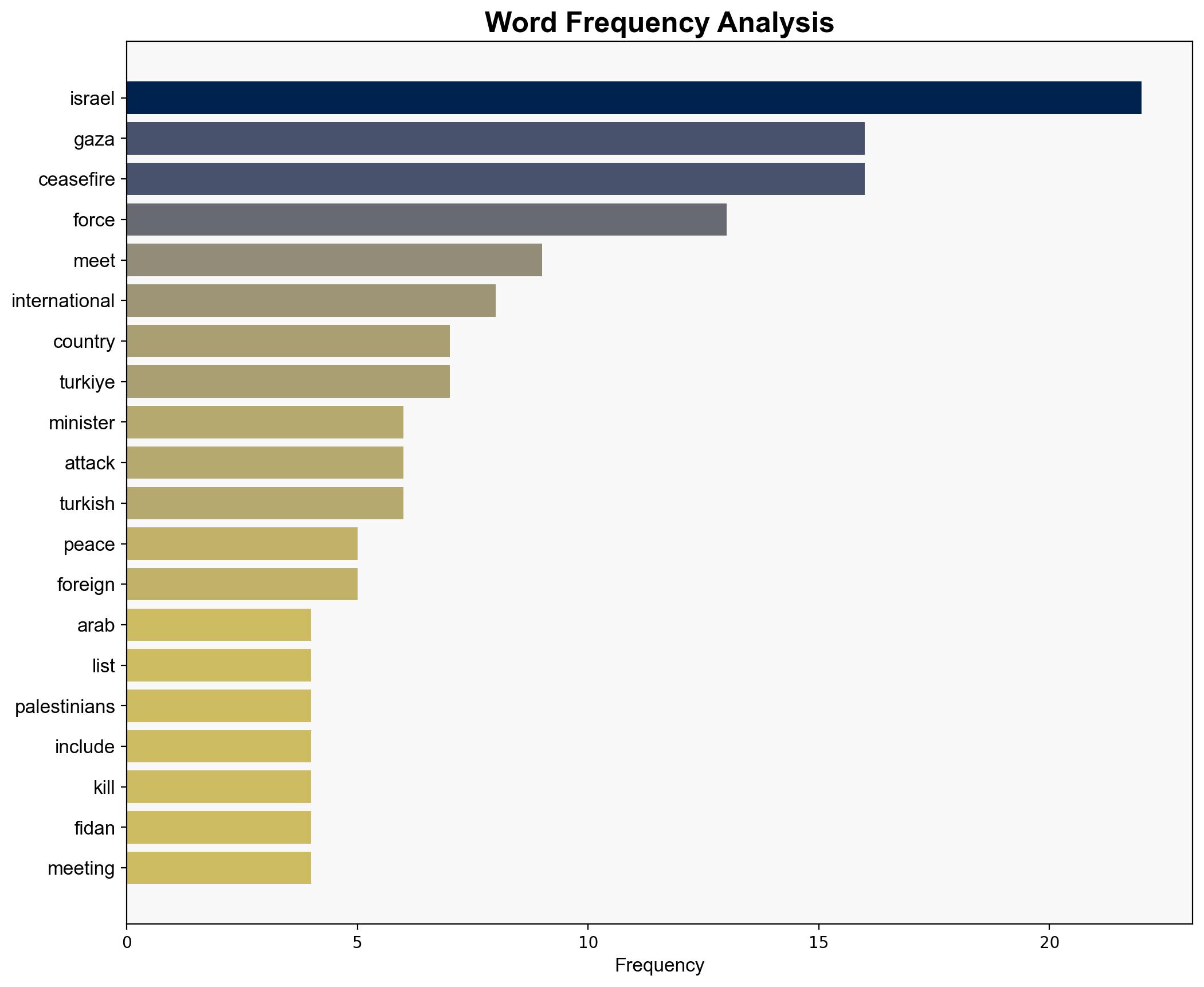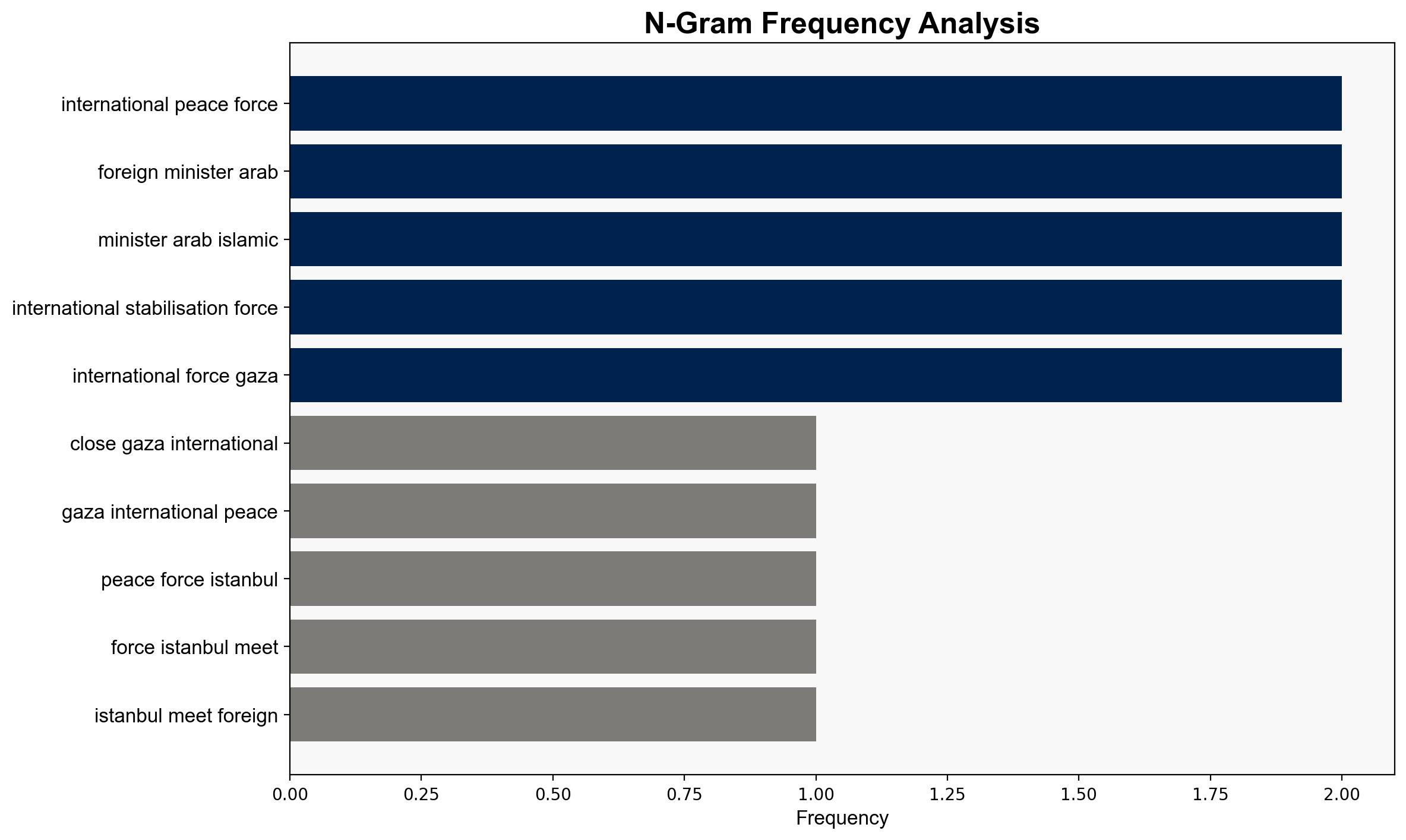Are we closer to a Gaza international peace force after Istanbul meeting – Al Jazeera English
Published on: 2025-11-03
Intelligence Report: Are we closer to a Gaza international peace force after Istanbul meeting – Al Jazeera English
1. BLUF (Bottom Line Up Front)
The likelihood of establishing an international peace force in Gaza remains low due to significant geopolitical and trust barriers. The most supported hypothesis is that while discussions are ongoing, the lack of consensus and trust among key stakeholders, particularly between Arab states and Israel, will impede progress. Confidence Level: Moderate. Recommended action includes diplomatic engagement to build trust and define clear mandates for any proposed force.
2. Competing Hypotheses
Hypothesis 1: The Istanbul meeting will lead to the establishment of an international peace force in Gaza. This hypothesis is supported by the active participation of multiple countries and the ongoing discussions about mandates and troop contributions.
Hypothesis 2: The Istanbul meeting will not result in the establishment of an international peace force due to unresolved trust issues and geopolitical tensions, particularly involving Israel’s actions and the lack of a clear mandate.
Using ACH 2.0, Hypothesis 2 is better supported. The evidence of continued Israeli ceasefire violations and the lack of trust among Arab states and Israel outweighs the optimistic discussions of troop contributions.
3. Key Assumptions and Red Flags
Key assumptions include the belief that international consensus can be reached despite historical tensions. A red flag is the assumption that Israel will cooperate with an international force, given its track record of ceasefire violations. The absence of a clearly defined mandate for the peace force is a significant blind spot.
4. Implications and Strategic Risks
The failure to establish a peace force could lead to continued instability in Gaza, with potential escalation of violence. Geopolitically, this may strain relations between Israel and Arab states further. Economically, prolonged conflict could exacerbate humanitarian crises, affecting regional stability. The risk of cyber and psychological operations by involved parties to sway public opinion and diplomatic stances is also notable.
5. Recommendations and Outlook
- Engage in confidence-building measures between Israel and Arab states to facilitate dialogue.
- Develop a clear, actionable mandate for the proposed peace force to address concerns and build trust.
- Scenario Projections:
- Best Case: Successful establishment of a peace force leading to sustained ceasefire and regional stability.
- Worst Case: Breakdown in talks leading to increased violence and regional instability.
- Most Likely: Continued discussions without immediate resolution, maintaining the status quo.
6. Key Individuals and Entities
– Hakan Fidan
– Recep Tayyip Erdogan
– Donald Trump
7. Thematic Tags
national security threats, regional focus, geopolitical tensions, peacekeeping efforts





